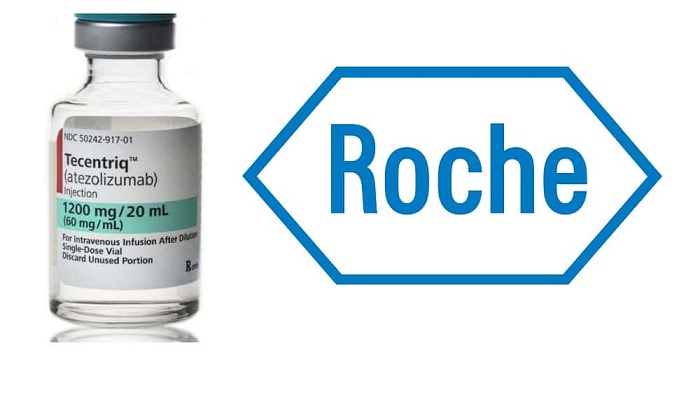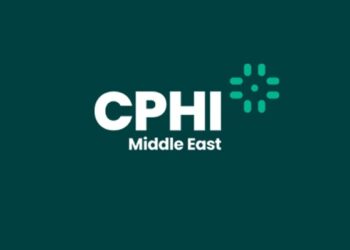Roche announced that the US FDA approved Tecentriq in combination with Avastin, paclitaxel and carboplatin (chemotherapy), for the initial (first-line) treatment of people with metastatic non-squamous non-small cell lung cancer (NSCLC) with no EGFR or ALK genomic tumour aberrations.
“This Tecentriq regimen has demonstrated a significant survival benefit in the initial treatment of metastatic non-squamous non-small cell lung cancer,” said Sandra Horning, MD, Roche’s Chief Medical Officer and Head of Global Product Development. “Today’s approval supports our combination approach for Tecentriq in lung cancer and our vision to develop medicines that improve outcomes for patients with this complex disease.”
This approval is based on results from the Phase III IMpower150 study, which showed that Tecentriq in combination with Avastin and chemotherapy helped people live significantly longer, compared to Avastin and chemotherapy (median overall survival [OS]=19.2 versus 14.7 months; hazard ratio [HR]=0.78; 95%, CI: 0.64–0.96; p=0.016) in the intention-to-treat wild-type (ITT–WT) population.[1] The safety profile of the Tecentriq combination was consistent with that observed in previous studies.
Roche is working with the FDA on post-marketing commitments (PMCs) to better understand and characterise the potential effects of Tecentriq-related anti-drug antibodies (ADAs) and neutralising antibodies (NAbs) across all of our studies. An analysis of ADAs in the IMpower150 study showed no impact on the efficacy of Tecentriq.
Tecentriq is also approved by the FDA to treat people with metastatic NSCLC who have disease progression during or following platinum-containing chemotherapy, and have progressed on an appropriate FDA-approved targeted therapy if their tumour has EGFR or ALK genetic alterations.
About NSCLC
Lung cancer is the leading cause of cancer death globally.[2] Each year 1.76 million people die as a result of the disease; this translates into more than 4,800 deaths worldwide every day.[2] Lung cancer can be broadly divided into two major types: NSCLC and small cell lung cancer. NSCLC is the most prevalent type, accounting for around 85% of all cases.[3] NSCLC comprises non-squamous and squamous-cell lung cancer, the squamous form of which is characterised by flat cells covering the airway surface when viewed under a microscope.
About Roche
Roche is a global pioneer in pharmaceuticals and diagnostics focused on advancing science to improve people’s lives. The combined strengths of pharmaceuticals and diagnostics under one roof have made Roche the leader in personalised healthcare – a strategy that aims to fit the right treatment to each patient in the best way possible.
Roche is the world’s largest biotech company, with truly differentiated medicines in oncology, immunology, infectious diseases, ophthalmology and diseases of the central nervous system. Roche is also the world leader in in vitro diagnostics and tissue-based cancer diagnostics, and a frontrunner in diabetes management.
Founded in 1896, Roche continues to search for better ways to prevent, diagnose and treat diseases and make a sustainable contribution to society. The company also aims to improve patient access to medical innovations by working with all relevant stakeholders. Thirty medicines developed by Roche are included in the World Health Organization Model Lists of Essential Medicines, among them life-saving antibiotics, antimalarials and cancer medicines. Moreover, for the tenth consecutive year, Roche has been recognised as the most sustainable company in the Pharmaceuticals Industry by the Dow Jones Sustainability Indices (DJSI).
The Roche Group, headquartered in Basel, Switzerland, is active in over 100 countries and in 2017 employed about 94,000 people worldwide. In 2017, Roche invested CHF 10.4 billion in R&D and posted sales of CHF 53.3 billion. Genentech, in the United States, is a wholly owned member of the Roche Group. Roche is the majority shareholder in Chugai Pharmaceutical, Japan. For more information, please visit www.roche.com.



















